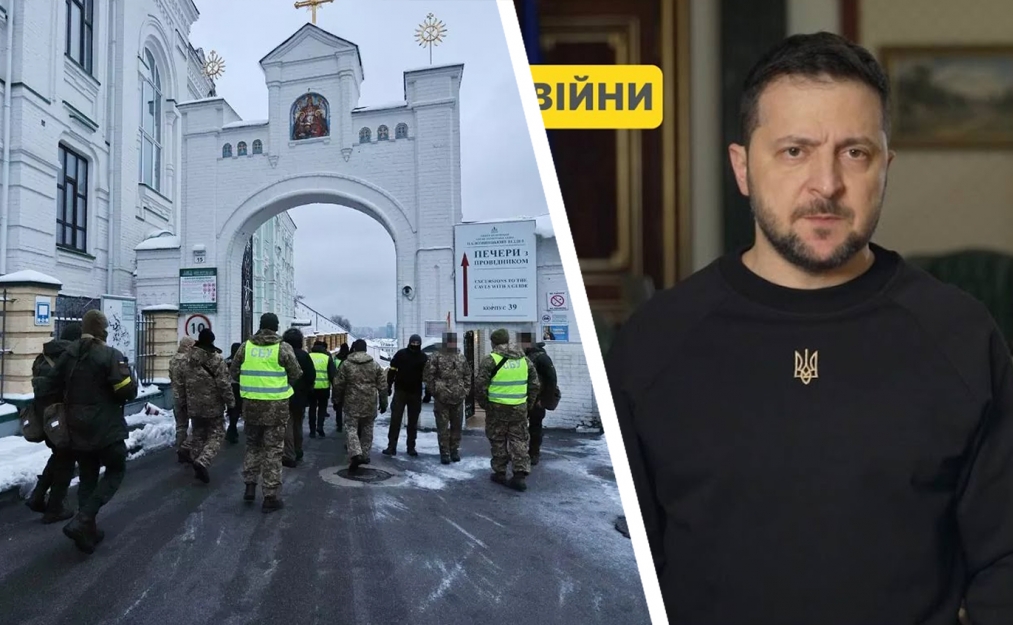Raising concerns over Zelensky's green light to ban the Ukrainian Orthodox Church activities

On 1. December Ukrainian President Volodymyr Zelensky announced that he had signed a decision by the National Security and Defense Council of Ukraine (NSDC). The decision instructed the government to submit a bill "on the impossibility of religious organizations affiliated with the centres of influence in the Russian Federation to operate in Ukraine" to the Verkhovna Rada. Although this is a political decision conveyed during a war period, the way it is put into practice could gravely affect religious freedom in the country.
The Ukrainian Orthodox Church (UOC), which represents the traditional branch of Christian Orthodoxy in Ukraine, was until May 2022 an autonomous church under the jurisdiction of the Moscow Patriarchate. The situation changed when the UOC Holy Synod declared absolute independence and autonomy from the Moscow Patriarchate as it rejected Patriarch Kirill’s support of the war. Nonetheless, since the Moscow Patriarchate is a party to the UOC statutes, it is impossible to alter them unilaterally.
It is also important to note that in 2018 the Orthodox Church of Ukraine (OCU) split from the UOC as an autocephalous Eastern Orthodox church recognized by the Ecumenical Patriarchate of Constantinople but not by the Moscow Patriarchate, which de facto represented a schism inside the Eastern Orthodox Church. Nowadays there is a growing number of parishes of the UOC switching to the OCU, and although the percentage of the population that each church represents is not clear, it seems that the UOC is still the largest, also taking into account the occupied parts of Ukraine.
The newly signed Decree No. 820/2022 of December 1, 2022, of the President of Ukraine Volodymyr Zelensky, published on the website of the President’s Office, declares that "on certain aspects of the activities of religious organizations in Ukraine and the application of personal special economic and other restrictive measures (sanctions) shall be implemented."
It continues: "Having considered the activities of religious organizations on the territory of Ukraine in the context of the military aggression of the Russian Federation against Ukraine, in order to ensure spiritual independence, prevent a split in society on religious grounds, promote the consolidation of Ukrainian society and protect national interests, the National Security and Defense Council of Ukraine decided (NSDC) [to instruct the] Cabinet Of Ministers Of Ukraine [to] submit to the Verkhovna Rada of Ukraine within two months a draft law on preventing the activities of religious organizations affiliated with the Centers of influence in the Russian Federation; […] the State Service of Ukraine for Ethnopolitics and Freedom of Conscience (SESS) shall ensure within two months, in accordance with the law of Ukraine "on freedom of conscience and religious organizations", conducting a religious examination of the Charter on the administration of the Ukrainian Orthodox Church for the presence of a church-canonical connection with the Moscow Patriarchate, if necessary, to take measures provided for by law."
Although the decree states that the implementation of these measures should be made considering "freedom of conscience and religion, and the activities of religious organizations" following international law, there are rising questions about whether this will be possible.
In the last few weeks, an increasing number of raids on UOC parishes, monasteries, and churches by the Security Service of Ukraine (SBU) have been reported. As reported by Ukrainian authorities, they are gathering evidence of Moscow’s infiltration inside the UOC, which would lead to its ban, according to the new decree. On 1 December the spokesman for the OCU, Archbishop Yevstratiy (Zorya), said the Holy Dormition Kyiv-Pechersk Lavra, the most famous monastery in Ukraine and run by the UOC, was officially registered as an OCU monastery, but the UOC refuted the claims. As an immediate consequence of these raids, Ukraine has imposed sanctions against multiple representatives of the UOC. In an interview given by Metropolitan Kliment of the UOC to Meduza, he expressed his disagreement with the sanctions as they were applied without a court decision determining the guilt or the innocence of the sanctioned.
If finally, the Ukrainian Orthodox Church is banned as an institution from operating in Ukraine, instead of individually pointing out those inside it that attempt against the country's national security, this would represent an important setback on religious freedom in one of the countries generally ranked among the best in terms of religious freedom in the Eastern European and post-Soviet regions.
Sources: president.gov.ua; Meduza.io; Духовний Фронт України; Interfax-Ukraine; thetimes.co.uk; TVP World; cne.news; Радио Свобода
Photo: YouTube & Служба безпеки України (SBU)